
Sophie Werkö has an MSc in Business Administration and a PhD from the University of Stockholm. She has a longstanding engagement with HTA and started in HTA as Project Director at The Swedish Agency for Health Technology Assessment and Assessment of Social Services (SBU). She is experienced in leading, managing, and conducting evidence reviews in the field of HTA. She is the Director of International Relations at SBU, responsible for coordinating SBU’s international work. For many years she led the work on Patient Involvement at SBU as well as the work by the Council for Knowledge-Based Policy’s working group on patient involvement, including participants from nine government agencies, which resulted in a common policy for user engagement, approved in 2018. She is still very active in the work on Patient Involvement, both in Sweden and internationally.
As Chair of the International Network of Agencies for Health Technology Assessment (INAHTA) between 2018-2020, she had an important role of leading the global network of publicly funded HTA agencies. She has participated in the work of the European network for Health Technology Assessment (EUnetHTA) since 2009 and represented Sweden in the EU HTA Network (HTAN) from 2013 onwards. She also acted as regional advisor to the WHO Egypt office and the WHO in the EMRO Region. Since 2019 she has been responsible for the Swedish Government commissioned initiative to establish an international collaboration on Social Technology Assessment (STA) for publicly funded actors that do systematic reviews on interventions in social care. As a result, the International Network for Social Intervention Assessment, INSIA, was founded in 2021. She currently serves as Secretary in INSIA. She is Deputy Editor in the International Journal of Technology Assessment in Health Care (IJTAHC) and member of the Editorial Board of Research Involvement and Engagement.

Minna Ljunggren, State Secretary to the Minister of Social Services Camilla Waltersson Grönvall
CV Minna Ljunggren
Photo: Kristian Pohl/Swedish Government Offices
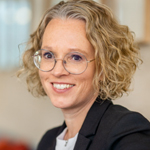
As of September 2022, Britta Björkholm was appointed Director General of the Swedish Agency for HTA and Assessment of Social Services (SBU). Britta holds a PhD from the Karolinska Institute in gastroenterology and hepatology. She started out working in the areas of gastrointestinal microflora and communicable disease control at the Karolinska Institute and the Swedish Institute for Communicable Disease Control. Before joining SBU, she spent almost eight years at the Public Health Agency of Sweden, most recently as Head of the Department of Communicable Disease Control and Health Protection.
 Nick Baillie is currently programme director: implementation and engagement at the National Institute for Health and Care Excellence (NICE). NICE produce evidence-based guidelines and quality standards across social care, public health and health care sectors in England. When NICE’s role in social care was formally established in 2013, Nick had a role working on some of the first guidelines and quality standards, agreeing a library of social care topics and building the organisation’s relationships with key partners in the social care sector. In his current role, Nick is responsible for work to engage key national partners in NICE’s work, support implementation of guidelines and assess their impact. This includes a broad range of topics across social care, with a particular interest in the interface of social care and health care. Key areas of work include embedding evidence based guidelines in the quality improvement frameworks and regulation of the social care system. Prior to working at NICE, Nick worked in a variety of quality improvement and governance roles across the public sector and holds a masters degree in health services research.
Nick Baillie is currently programme director: implementation and engagement at the National Institute for Health and Care Excellence (NICE). NICE produce evidence-based guidelines and quality standards across social care, public health and health care sectors in England. When NICE’s role in social care was formally established in 2013, Nick had a role working on some of the first guidelines and quality standards, agreeing a library of social care topics and building the organisation’s relationships with key partners in the social care sector. In his current role, Nick is responsible for work to engage key national partners in NICE’s work, support implementation of guidelines and assess their impact. This includes a broad range of topics across social care, with a particular interest in the interface of social care and health care. Key areas of work include embedding evidence based guidelines in the quality improvement frameworks and regulation of the social care system. Prior to working at NICE, Nick worked in a variety of quality improvement and governance roles across the public sector and holds a masters degree in health services research.
 Rigmor C Berg has an MA from the Norwegian University of Science and Technology (Norway), an MS from the University of Montana (USA) and a PhD in Health Promotion and Behavior from the University of Georgia (USA). She is currently completing an MBA at the Norwegian Business School. She works with evidence-based practice, HIV-prevention research and topics related to sexual health and equality. Rimo is Department Director at the Norwegian Institute of Public Health. As Department Director, she is responsible for and supervise a range of systematic review projects, including implementation of machine learning into systematic review processes. Her responsibilities also include personnel management, teaching, budget, strategy and collaboration with policy makers. Rimo is also a Professor at UiT The Arctic University of Norway, where she teaches a mandatory course in the master’s program in Public Health, supervises students and conducts research. Rimo has authored about a hundred systematic reviews, including qualitative evidence syntheses, mapping reviews, rapid reviews, evidence and gap maps, and other systematic reviews. Most of Rimo’s primary research, which includes over 60 articles in international journals, concern sexual health. She is vice-chair of INSIA, board member of the Norwegian Network for Systematic Reviews and of the Scandinavian GRADE network.
Rigmor C Berg has an MA from the Norwegian University of Science and Technology (Norway), an MS from the University of Montana (USA) and a PhD in Health Promotion and Behavior from the University of Georgia (USA). She is currently completing an MBA at the Norwegian Business School. She works with evidence-based practice, HIV-prevention research and topics related to sexual health and equality. Rimo is Department Director at the Norwegian Institute of Public Health. As Department Director, she is responsible for and supervise a range of systematic review projects, including implementation of machine learning into systematic review processes. Her responsibilities also include personnel management, teaching, budget, strategy and collaboration with policy makers. Rimo is also a Professor at UiT The Arctic University of Norway, where she teaches a mandatory course in the master’s program in Public Health, supervises students and conducts research. Rimo has authored about a hundred systematic reviews, including qualitative evidence syntheses, mapping reviews, rapid reviews, evidence and gap maps, and other systematic reviews. Most of Rimo’s primary research, which includes over 60 articles in international journals, concern sexual health. She is vice-chair of INSIA, board member of the Norwegian Network for Systematic Reviews and of the Scandinavian GRADE network.
 Marie-Claude Sirois holds a bachelor’s degree in psychology from Université Laval (1995), a master’s degree in psychoeducation from the Université du Québec en Outaouais (2002), for which she was awarded the Governor General’s Gold Medal, and a master’s degree in administration science – Management and development of organizations from Université Laval (2009). Initially a clinician working with children in need of protection, young people and families in difficulty, as well as adults with mental health problems, she continued her career as a manager in the health and social services network from 2002, notably as Director of Professional Services and Quality at the Centre jeunesse de l’Outaouais and Director of Multidisciplinary Services at the CISSS de l’Outaouais. She has also been involved in various organizations, including as Chair of the Multidisciplinary Council and member of the Board of Directors of the Agence de la santé et des services sociaux de l’Outaouais, as a founding member of the Executive Committee of the Laboratoire de recherche interdisciplinaire sur les droits de l’enfant at the University of Ottawa, and as a member of the Board of Directors of the Ligue sur le bien-être des enfants du Canada (LBEC/CWLC). Ms. Sirois has been working at INESSS since 2017, where she currently holds the position of Director of the Directorate of Evaluation and Support for the Improvement of Intervention Methods in Social Services and Mental Health. Since 2019, she has contributed to the creation of the International Network of Social Intervention Assessment (INSIA) to support networking, international collaboration and methodological development.
Marie-Claude Sirois holds a bachelor’s degree in psychology from Université Laval (1995), a master’s degree in psychoeducation from the Université du Québec en Outaouais (2002), for which she was awarded the Governor General’s Gold Medal, and a master’s degree in administration science – Management and development of organizations from Université Laval (2009). Initially a clinician working with children in need of protection, young people and families in difficulty, as well as adults with mental health problems, she continued her career as a manager in the health and social services network from 2002, notably as Director of Professional Services and Quality at the Centre jeunesse de l’Outaouais and Director of Multidisciplinary Services at the CISSS de l’Outaouais. She has also been involved in various organizations, including as Chair of the Multidisciplinary Council and member of the Board of Directors of the Agence de la santé et des services sociaux de l’Outaouais, as a founding member of the Executive Committee of the Laboratoire de recherche interdisciplinaire sur les droits de l’enfant at the University of Ottawa, and as a member of the Board of Directors of the Ligue sur le bien-être des enfants du Canada (LBEC/CWLC). Ms. Sirois has been working at INESSS since 2017, where she currently holds the position of Director of the Directorate of Evaluation and Support for the Improvement of Intervention Methods in Social Services and Mental Health. Since 2019, she has contributed to the creation of the International Network of Social Intervention Assessment (INSIA) to support networking, international collaboration and methodological development.
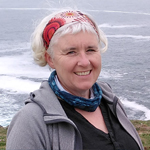 Alison Bethel is an Information Specialist for PenARC (Applied Research Collaboration South West Peninsula), University of Exeter Medical School in the South West of England. Alison works in the Evidence Synthesis Team and her role in the team is to undertake systematic literature searching for evidence synthesis projects. Alison has been in this role for 13 years and has experience in developing and running searches in different subject areas including health, public health and environmental, she also has experience in different types of evidence syntheses including systematic, rapid, realist and mapping reviews along with evidence and gap maps. Alison has an interest in information retrieval methods and has published in this field, her current interest is around evaluating search methods at the end of a review. She is an active member of EAHIL (European Association for Health Information and Libraries) and the Campbell Collaboration. Prior to this role, Alison worked as a Librarian for a Government Research Laboratory and the Environment Agency.
Alison Bethel is an Information Specialist for PenARC (Applied Research Collaboration South West Peninsula), University of Exeter Medical School in the South West of England. Alison works in the Evidence Synthesis Team and her role in the team is to undertake systematic literature searching for evidence synthesis projects. Alison has been in this role for 13 years and has experience in developing and running searches in different subject areas including health, public health and environmental, she also has experience in different types of evidence syntheses including systematic, rapid, realist and mapping reviews along with evidence and gap maps. Alison has an interest in information retrieval methods and has published in this field, her current interest is around evaluating search methods at the end of a review. She is an active member of EAHIL (European Association for Health Information and Libraries) and the Campbell Collaboration. Prior to this role, Alison worked as a Librarian for a Government Research Laboratory and the Environment Agency.
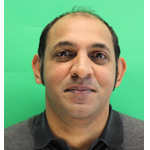
Bhash Naidoo is the Senior Technical Adviser for health economics within the NICE Centre for Guidelines, leading a team of health economists responsible for the development and quality assurance of the health economic components of NICE guidelines across clinical, public health and social care topics. In addition, Bhash has the lead responsibility for developing health economic methods and processes within the Centre, such as involvement with the development of NICE’s methods for social care guidance and the EQ Health and Wellbeing (EQ-HWB) measure. Previously, Bhash has worked in Technology Appraisals and Research & Development within NICE, and prior to that on health policy development for the UK within His Majesty’s Treasury, the Department of Health and Social Care, and the Health Development Agency. Bhash has a Ph.D. from the London School of Health and Tropical Medicine in public health medicine with a thesis entitled “The role of public health models in policymaking”.
 Stephanie Lee is the Director of the Washington State Institute for Public Policy (WSIPP), an applied, nonpartisan research institute working at the direction of the Washington State legislature. She began her research career at a community-based charity in the United Kingdom, which sparked her interest in evidence-based prevention strategies. Stephanie joined WSIPP in 2007 and became Director in 2018. Her research work at WSIPP has focused on investigating the societal benefits and costs of programs and policies across a wide variety of public policy areas, including child welfare, education, criminal justice, and public health. She led the development of the WSIPP benefit-cost model and WSIPP’s collaboration with the Pew-MacArthur Results First Initiative, which provides support to 25 states and nine counties across the country as they work to incorporate research and economic evidence into public policymaking. Stephanie holds a bachelor’s degree in psychology from Trinity University and a master’s in experimental psychology from Washington University in St. Louis.
Stephanie Lee is the Director of the Washington State Institute for Public Policy (WSIPP), an applied, nonpartisan research institute working at the direction of the Washington State legislature. She began her research career at a community-based charity in the United Kingdom, which sparked her interest in evidence-based prevention strategies. Stephanie joined WSIPP in 2007 and became Director in 2018. Her research work at WSIPP has focused on investigating the societal benefits and costs of programs and policies across a wide variety of public policy areas, including child welfare, education, criminal justice, and public health. She led the development of the WSIPP benefit-cost model and WSIPP’s collaboration with the Pew-MacArthur Results First Initiative, which provides support to 25 states and nine counties across the country as they work to incorporate research and economic evidence into public policymaking. Stephanie holds a bachelor’s degree in psychology from Trinity University and a master’s in experimental psychology from Washington University in St. Louis.

Aïssatou Sow holds a double Master’s degree in Public Health from the Paris 5 Rene Descartes University (2010) and in Health Marketing and Communications from the Leonard de Vinci Institute (2012). She started her career as a Project Manager at The French National Cancer Institute (INCa) where she was in charge of producing guides for cancer patients. In 2015, Ms. Sow joined the National Agency for the Evaluation and Quality of Social and Medico-Social Institutions and Services (ANESM) until its integration into the French National Authority for Health (HAS) in April 2018. She currently holds the position of Acting Head of the Guidelines Department in the Quality of Social Care Directorate. In this role, Ms. Sow is mainly in charge of leading the production of best practice guidelines for professionals in the social care field in order to improve quality in social care services.
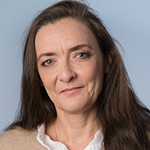
Cecile Lagarde is a doctor in Sociology, specialized in qualitative research with vulnerable populations.
She currently works at the French National Authority for Health in the Quality of Social Care Directorate. Ms Lagarde leads a program that aims to promote users' views, by defining, alongside researchers, professionals and users, the conceptual, methodological and ethical bases.
Prior to obtaining this position, she previously worked in medical and social institutions. Her background also includes university and professional teaching.
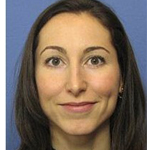
Heather Menzies Munthe-Kaas is a researcher at the Norwegian Institute of Public Health. She is co-founder of the GRADE-CERQual approach and the TRANSFER approach. She has been conducting systematic reviews of effectiveness and qualitative evidence syntheses for ten years. Her research interests focus on using user-centred design approaches to develop methods and tools to improve the usefulness, relevance and usability of systematic review findings and improve stakeholder representation in evidence-informed decision-making processes. Other research interests include resources for improving critical health literacy among children and youth, and public participation in decision making.
 Clara Mukuria, PhD is a senior research fellow within the School of Health and Related Research at the University of Sheffield. She has an interest in developing and testing patient reported outcome measures with a specific focus on preference-based measures used in economic evaluation. She co-led the international study on the development of the EQ Health and Wellbeing (EQ-HWB), a new generic preference-based measure developed for use across health and social care. She currently chairs the EQ-HWB Working Group (within the EuroQol Group) which aims to undertake further testing and refining of the new measure.
Clara Mukuria, PhD is a senior research fellow within the School of Health and Related Research at the University of Sheffield. She has an interest in developing and testing patient reported outcome measures with a specific focus on preference-based measures used in economic evaluation. She co-led the international study on the development of the EQ Health and Wellbeing (EQ-HWB), a new generic preference-based measure developed for use across health and social care. She currently chairs the EQ-HWB Working Group (within the EuroQol Group) which aims to undertake further testing and refining of the new measure.

Marie Österberg holds a PhD in Biochemistry from Stockholm University. She has been working with SBU:s assignment in collecting evidence gaps since she started at the agency 2013. As a large part of this work, she has been involved in discussions on how to increase the usefulness of research.
She has a leading position in SBU:s work on highlighting the importance of involving the end users in the research agenda and has herself managed several projects where patients/users, relative, relevant profession prioritize important research questions and research outcomes.
 Swedish Agency for Health Technology Assessment and Assessment of Social Services
Swedish Agency for Health Technology Assessment and Assessment of Social Services
 Share on Facebook
Share on Facebook
 Share on LinkedIn
Share on LinkedIn
 Share on X
Share on X
 Share via Email
Share via Email
